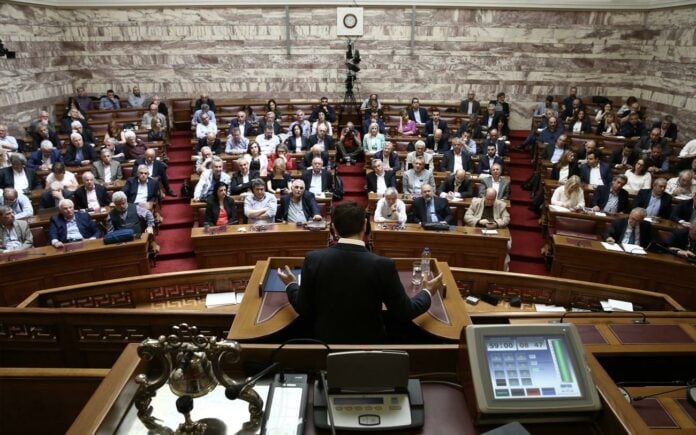By G. Kampourakis
[email protected]
A closed door briefing of ruling SYRIZA party’s Parliamentary group by Greek PM Alexis Tsipras and Finance Minister Euclid Tsakalotos on Monday, over the course towards the end of the current third bailout, apparently wasn’t as smooth as leaks by the government side insinuated in the early afternoon.
In contrast to comments by sources from both by the prime minister’s office and the finance ministry, back-and-forth questions and answers and sharp criticism was reportedly rife inside Parliament’s Senate chamber , with the session anything but low-key or held amid a general consensus.
According to reports by “N”, Tsipras’ leitmotif of a “clean exit” from the bailout era after August 2018 was met with apprehension by numerous SYRIZA deputies.
Some 10 MPs, in fact, referred directly to the prospect of a reduction in pensions coming as of Jan. 1, 2019, along with a lowering of the annual tax-free income tax ceiling. Both austerity measures tabled and pass through Parliament by the Tsipras government are scheduled to come on line in 2020, although the IMF continues to press for implementation a year earlier – something also foreseen in an agreement between the leftist-rightist coalition government and creditors.
Among others, former minister Nikos Filis, among the more left-wing lawmakers of leftist SYRIZA, reportedly asked “why are we talking about a clean exit (from the memorandums) if we need to cut pensions?”
Another barrage of questions revolved around the same-day announcement of a primary budget surplus for 2017 exceeding 4 percent of GDP, a figure that significantly outperforms a foreseen fiscal target of 1.75 percent, with a handful of MPs asking why the billions of euros accumulated as Greek state surplus cannot offset cuts in tax deductibles and pensions.
The same group of SYRIZA deputies said they were hard-pressed to justify the pending austerity measures in any coming election period.
Additionally, leftist deputies from Florina and Kozani prefectures, in northern Greece, bemoaned the widely expected sale of four lignite-fired Public Power Corp. (PPC) units and lignite pits – a memorandum obligation and a long-standing demand by the EU’s competition authority, DG Comp.
What raised heckles in the chamber was Energy Minister Giorgos Stathakis’ statements and a provision in the draft law allowing the new owners to lay-off workers at the power stations after six years.














